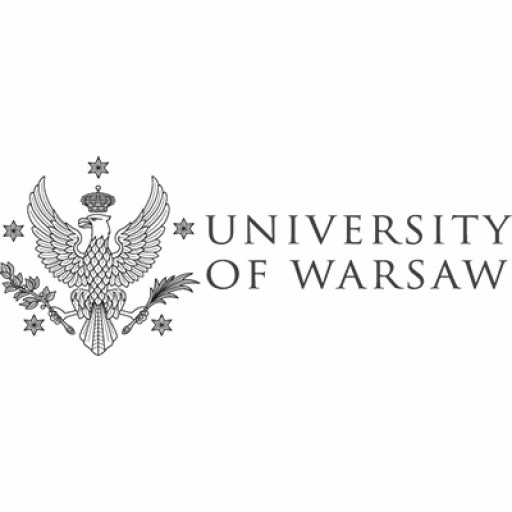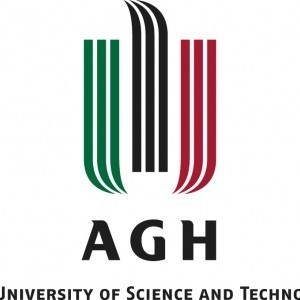Photos of university / #uniwersytetslaski
Nanophysics and Mesoscopic Materials, Modelling and Applications at the University of Silesia in Katowice offers a comprehensive interdisciplinary education focused on the fundamental and applied aspects of nanoscale physical phenomena. This program is designed for students interested in exploring the behavior of materials at the nanometer scale and understanding how quantum and classical effects influence their properties. The curriculum provides a solid foundation in physics, with specialized courses in nanophysics, mesoscopic systems, computational modelling, and materials science. Students will learn about advanced experimental techniques used to analyze nanostructures, as well as numerical methods for simulating physical systems at the microscopic and mesoscopic levels. The program emphasizes practical skills and encourages research activity through laboratory work, project-based learning, and collaborations with industry and research institutes. Graduates will be well-prepared for careers in research and development in sectors such as nanotechnology, electronics, materials engineering, and biotechnology. They will also acquire the ability to analyze complex physical systems, develop innovative solutions, and contribute to technological advancements. The University of Silesia’s modern laboratories and partnerships with industry provide students with access to state-of-the-art equipment and real-world problems, fostering a hands-on learning environment. This program aims to produce highly qualified specialists capable of addressing contemporary challenges in science and industry by applying advanced modelling techniques and innovative material applications at the nanoscale.
The Nanophysics and Mesoscopic Materials, Modelling and Applications program at the University of Silesia in Katowice offers students an in-depth exploration of the fundamental principles and cutting-edge developments in nanoscience and mesoscale phenomena. This interdisciplinary program is designed to equip graduates with a solid understanding of the physical properties of materials at the nanoscale, where classical physics transitions into quantum mechanics, leading to novel behaviors and applications. Throughout the course, students will study the structural, electronic, optical, and magnetic properties of nanomaterials, gaining practical skills in the synthesis, characterization, and manipulation of these materials using advanced experimental techniques.
The curriculum emphasizes the theoretical modeling and computational simulation of nanostructures and mesoscopic systems, enabling students to predict behaviors and design new materials with tailored properties. Courses include quantum mechanics, condensed matter physics, nanofabrication techniques, electron microscopy, spectroscopy methods, and computational physics. Special focus is given to the applications of nanomaterials in electronics, photonics, energy storage, and biomedicine. Students will participate in laboratory exercises, research projects, and seminars that foster innovation and critical thinking, preparing them for careers in research, industry, or academia.
The program also includes modules on materials engineering, device physics, and the latest trends in nanotechnology, ensuring graduates are well-versed in both fundamental science and practical implementation. Collaboration with local research institutes and industry partners provides students with opportunities for internships and real-world experience. Upon graduation, students will possess specialized knowledge and skills to contribute to developments in nanotechnology, mesoscopic systems, and their diverse applications across sectors such as electronics, medicine, and renewable energy. This comprehensive program aims to develop experts capable of advancing science and technology in the rapidly evolving field of nanophysics and mesoscale materials.
The Nanophysics and Mesoscopic Materials, Modelling and Applications program at the University of Silesia in Katowice requires applicants to possess a strong background in physics and related disciplines. Prospective students should have completed secondary education with a focus on science and mathematics, demonstrating proficiency in subjects such as physics, mathematics, and chemistry. For international students, proof of language proficiency in English, such as IELTS or TOEFL scores, is necessary to ensure their capacity to follow coursework conducted in English.
Applicants are expected to submit a completed application form along with the relevant documentation, including a high school diploma or its equivalent, transcripts of grades, and a CV outlining academic and research experiences if applicable. In some cases, applicants may be required to pass an entrance examination or interview to assess their theoretical knowledge and motivation for studying the program. The university values applicants with prior experience or coursework in nanotechnology, condensed matter physics, or materials science, which are considered advantageous during the admission process.
The program emphasizes interdisciplinary knowledge, so students are encouraged to demonstrate skills in analytical thinking, laboratory techniques, and computational modeling. Candidates with a background in physics, applied physics, or related fields are preferred to ensure they can fully engage with the advanced topics covered in the curriculum. Additionally, some universities or admission procedures may require letters of recommendation from previous instructors or research supervisors to attest to the candidate's academic potential and research aptitude.
Relevant extracurricular activities, internships, or participation in scientific projects can strengthen an application, showing a genuine interest in nanophysics, mesoscopic materials, or related areas. The program aims to foster analytical skills, innovative thinking, and practical laboratory experience, preparing students for research careers or industry roles related to nanotechnology and material sciences. Successful applicants must also agree to abide by the rules and regulations of the university, including attendance, academic integrity, and participation in practical training components integral to the program.
Overall, the admission process for the Nanophysics and Mesoscopic Materials, Modelling and Applications program combines academic criteria, language proficiency, and motivation, ensuring that admitted students are capable of undertaking rigorous scientific study and research activities in this specialized field.
The financing of the Nanophysics and Mesoscopic Materials, Modelling and Applications program at the University of Silesia in Katowice primarily relies on a combination of state funding, tuition fees, and external grants. As a public university in Poland, the University of Silesia benefits significantly from government subsidies allocated through national educational policies aimed at promoting high-quality scientific research and advanced technical education. These funds support infrastructure development, faculty salaries, and research projects related to nanophysics and mesoscopic materials. Additionally, the program offers tuition fee options for both Polish and international students, which constitutes a considerable part of the program's financial resources. These fees are determined according to regulations set by the Polish Ministry of Education and are periodically reviewed to ensure competitiveness and sustainability.
The university also actively seeks external funding opportunities, including grants from the National Science Centre (NCN), the Ministry of Science and Higher Education, and the European Union. Such grants are crucial for financing cutting-edge research projects, laboratory modernization, and procurement of specialized equipment necessary for nanophysics and mesoscopic materials studies. Furthermore, the program encourages students to participate in research internships, Erasmus exchange programs, and industry collaborations, which are often supported by additional financial stipends or sponsorships aimed at fostering practical skills and international cooperation.
Scholarships are available for outstanding students based on academic performance, financial need, or participation in research activities. These scholarships are funded either from the university’s internal budget or through external sponsors committed to promoting scientific excellence. Additionally, the university's efforts to develop partnerships with industry stakeholders often result in co-financed projects, which further contribute to the program’s financial stability.
In summary, the program's financing is diversified and sustainable, relying on state support, tuition fees, research grants, scholarships, and industry partnerships. This multi-source approach ensures that students have access to high-quality education, practical training facilities, and opportunities for innovative research, all of which are vital in the rapidly evolving field of nanophysics and mesoscopic materials. The university's strategic focus on international collaboration and research excellence positions the program favorably for continuous financial growth and development.
The Nanophysics and Mesoscopic Materials, Modelling and Applications program at the University of Silesia in Katowice offers students a comprehensive pathway into the cutting-edge field of nanotechnology and condensed matter physics. This interdisciplinary program is designed to provide students with a solid theoretical foundation alongside practical skills in the study and manipulation of materials at the nanoscale. The curriculum covers a broad spectrum of topics, including quantum mechanics, solid state physics, nanomaterials synthesis, characterization techniques, and computational modelling. Emphasis is placed on understanding the physical properties of nanostructures and mesoscopic systems, exploring their potential for diverse applications in electronics, photonics, energy, and biomedicine. Students are also introduced to advanced modelling methods, enabling them to simulate nanoscale phenomena and predict material behavior. The program aims to develop analytical thinking, problem-solving abilities, and research skills through laboratory work, projects, and thesis research. Graduates of this program are prepared to pursue careers in research and development, high-tech industry, or further academic study, contributing to innovations in nanomaterials, devices, and systems. The program collaborates with research institutes and industry partners, providing students with internship and practical training opportunities that enhance employability. Overall, the program at the University of Silesia is tailored to meet the growing demand for specialists in nanoscience and nanotechnology, equipping students with the knowledge and skills needed to advance technology at the smallest scales.








